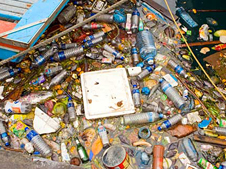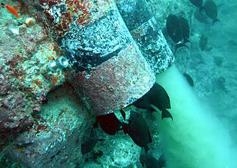The Judicial Service Commission (JSC) decided last week to reappoint all current judges, regardless of whether they hold a previous conviction for a crime or a criminal breach of trust or bribery.
After the decision was made, member of the commission Aishath Velazinee spoke out against it, writing in her blog, “it is indeed a sad state of affairs, and an insult to all those honest judges whose integrity and good name is compromised by today’s decision.”
Today, Velazinee told Minivan News it might seem like “one mad woman screaming,” but insisted “the Majlis has to attend to this and demand a public inquiry. I can only bring it to public attention.”
She said “Parliament has failed to hold the JSC accountable,” and said she still “firmly believes” the composition of the commission presents a conflict of interest, leading to a vote that ultimately contradicting the purpose of the commission.
The JSC was created to reform the judiciary and investigate all judges, “and was asked to evaluate every single sitting judge appointed prior to the 2008 Constitution,” Velazinee said.
According to the Constitution, the nine-member commission must comprise of the speaker of parliament; an MP and a member of the public both appointed by Parliament; three judges, one from the Supreme Court, High Court and the trial courts; a private lawyer elected among licensed lawyers; the Chair of the Civil Service Commission (CSC); a person appointed by the President; and the Attorney General.
“The JSC was not functioning under the law of the Constitution, and not acting in the interest of the public,” said Velazinee, who is the President’s member on the Commission.
She suggested it be made up of a “cross-section of people in this country, who are educated and have an understanding of democracy.”
Last week’s decision was won by majority, with five votes in favour.
“They have decided Article 285 is symbolic,” Velazinee said, “it is a very simplistic view of democracy.”
Article 285 stipulates that the JSC shall determine before August 7, 2010 whether or not judges on the bench posses the qualifications specified by the Constitution.
Currently, there are seven judges found guilty of a criminal breach of trust; five with allegations of a criminal breach of trust; two are being prosecuted for an alleged breach of trust; one is on trial for sexual misconduct; two have been found guilty of sexual misconduct; one was found guilty for an offence which had a prescribed punishment in Islam; and another judge who has been accused of a criminal breach of trust, and found guilty of sexual misconduct.
That is a total of nineteen judges with a criminal history, most of which have not been tried in a court of law.
Velazinee said she was not given an opportunity to discuss or issue alternative proposals, even though she had been trying to bring attention to her argument for months. “Even the Superior Court Justice decided it was not worthy,” she added.
Parliament’s power
Parliament has the power to reverse or alter the JSC’s decision, “but now they’re in recess, too,” Velazinee said, noting probably nothing much can be done until the Majlis reconvenes in mid-June.
Adding to Velazinee’s concern, the JSC has only until 7 August of this year to submit any reforms and all cases on the judges. “And probably not even until the deadline,” she added.
She said although the president “would normally have a say” in this decision, “in the current political context, the president getting involved could do more harm.”
Press Secretary for the President’s Office, Mohamed Zuhair, said “there are legalities to be considered” because “the law does stipulate a clause on limitations,” which says that a judge, or an MP or a citizen, “can be absolved of a crime after five years” of being convicted.
He added “judges should be examples” and new regulations and legislation should be considered.
Zuhair said President Mohamed Nasheed “will adhere to the Constitution,” and there is “nothing to do until Parliament comes back.”
But, he added, a parliamentary committee could look into the issue extraordinarily, just like the National Security Committee is having a sitting this Wednesday.
Judges Abdulla Mohamed and Abdulla Didi did not respond to Minivan News at time of press.
Attorney General Husnu Suood did not respond, either.



